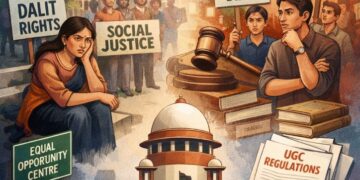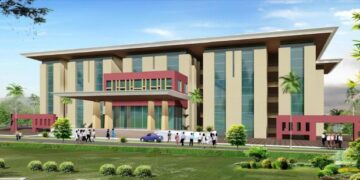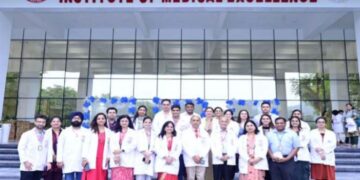Degrading or integrating—the debate on recent moves allowing Ayurveda practitioners to perform 58 types of surgeries and now making physics, chemistry and mathematics (PCM) optional for entry to engineering discipline, needs more time to settle.
In principle, the government move on both counts look great but from a distance only. The standard of Ayurveda education, students and institutions has a long way to go before; one can handle critical care to practitioners from complementary and alternative medicine in our country. Best way would be going a staggered way and allowing only basics procedures and that too from reputed colleges. Once science, ethics and standards come to safe levels, lot more surgical procedures will become available to Ayurveda practitioners with time, acceptability and confidence.
The government and planners it seems are looking at plumbing solutions to tide over shortages of doctors. In fact, Dental Council of India was earlier requested to formulate an ‘Integrated Modern Medicine and Dental Curriculum’ that will allow undergraduate dental graduates to be general practitioners.
The Indian Medical Association (IMA) is rightly contesting these decisions and generating awareness of the core issues that need to be addressed before any drastic step is taken to shake confidence in the public health and healthcare delivery.
Now to the curious case, where AICTE’s ‘Approval Process Handbook 2021-22’ hosted and removed from its website, generated a lot of outrage and approval for an unimaginable change in subjects required to enter into engineering education. In fact, the three subjects— physics, chemistry and mathematics—considered as the fundamental requirement to get into the discipline, were almost ‘dropped’ in AICTE’s communiqué. So, it was quite natural that it evoked strong reactions from cross section of people, some even cracked jokes and social media platforms poked fun.
Realizing the goof up and as it said ‘typographical error’; the technical education regulator removed the handbook from its site. Now, it has come with the explanation that PCM has not been done away with but are part of 14 subjects (of which a combination of three will be required to enter engineering education). Those who don’t have studied PCM can also apply to engineering courses and those admitting them will have bridge courses in which they will be taught maths, physics etc). Some engineering courses where these are not required can nevertheless admit them without. Physics, Mathematics, Chemistry, Computer Science, Electronics, Information Technology, Biology, Informatics Practices, Biotechnology, Technical Vocational Subjects, Agriculture, Engineering Graphics, Business Studies, and Entrepreneurship are the 14 subjects given by the AICTE. However, it remains to be seen how this will practically translate into reality. Nevertheless, NEP 2020 wants us to move in that direction and the attention the development got is in a way good beginning towards understanding the finesse and positive aspects of NEP. All these must be medium term goals and surely not the starters.
While in theory the concept is good, but again the quality of school education is still a grey area. Also, mathematics is part of life and must not be discouraged. Ways and means must be explored of making study of mathematics less fearsome and more rewarding. The attention, resources and energy must go to basics with final goals in mind. It will foster a culture that will surely organically drive the change.














